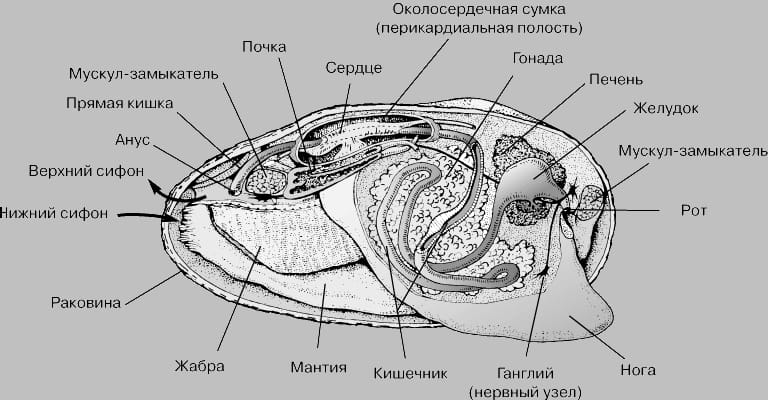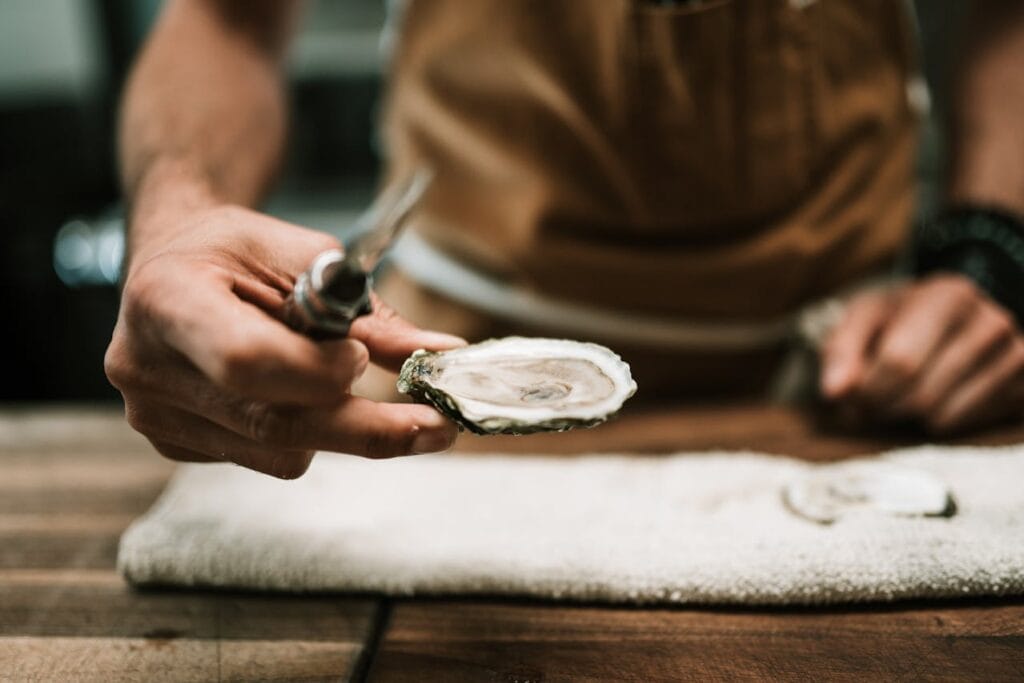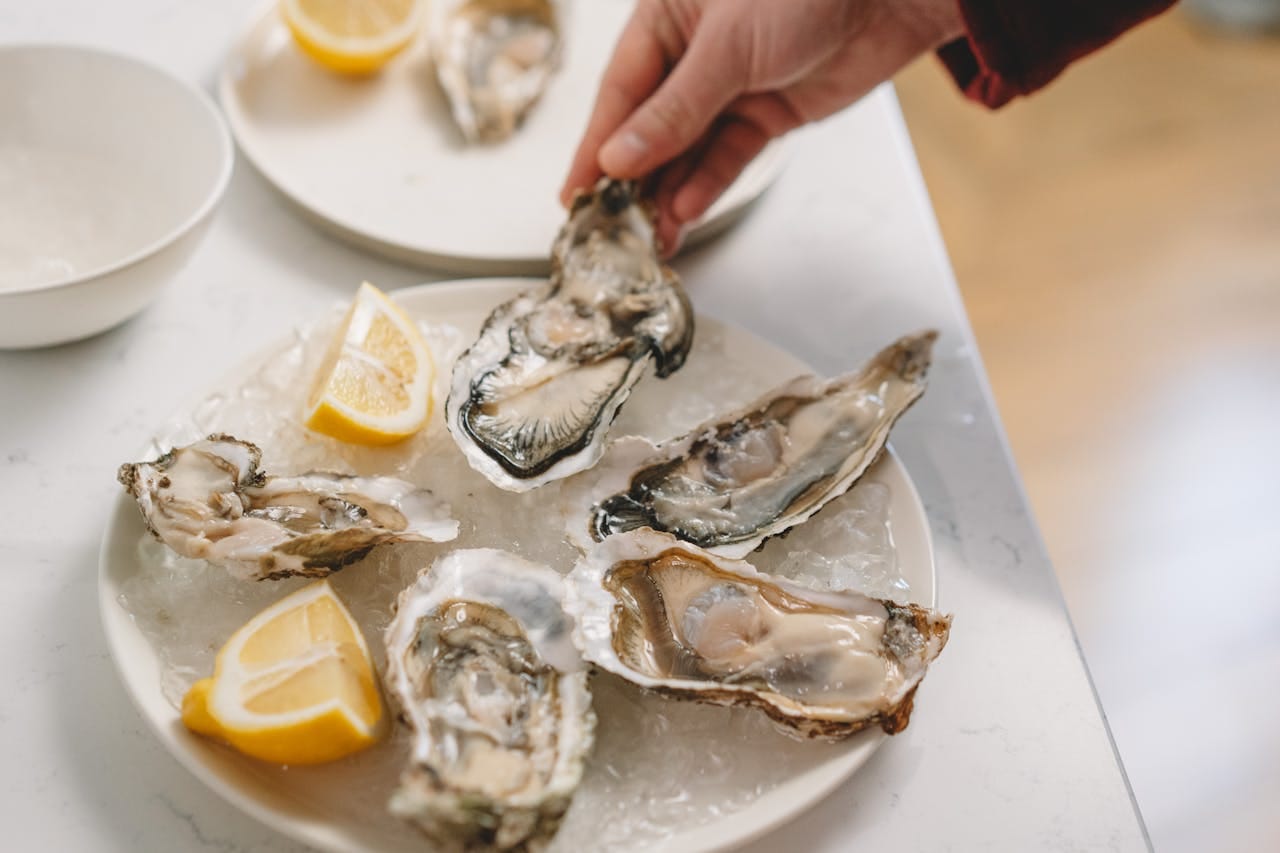It is common that oysters, who are usually served alive, publish a squeak. We decided to check if this is so.
The question of whether oysters are squealing, journalists often Set Experts on this delicacy. You can find a mention of this on entertainment Portals. The organizers of the oyster tastings Included This topic is in the program of events. They ask if this is true, and visitors to the services questions And answers, and users of the Platform Blog mention supposedly squeaking mollusks in posts And comments About this seafood.
Oysters - Double mollusks living in moderate and warm coastal waters of the oceans. The soft body is protected by a solid shell, which is usually slightly ajar so that water can get inside. In an hour, Mollusk can pass through himself up to 11 liters of water - so he filters up small organic particles that serve him food. Compared to some other mollusks (for example, cephalopods: octopuses, squid, karakatitsa, etc.), structure Double -income is quite primitive. They have a digestive and reproductive system, gills and cilia that help to capture and filter water, the muscles with which the sinks, even the heart move and close. However, they do not have a developed central nervous system, so oysters hardly understand what is happening when they are eaten. They are not able to experience pain, so some vegans and vegetarians who avoid animal foods, Do not refuse In this food, believing that oysters are even less reasonable than trees.

Oysters also do not have a speech apparatus with which they could make a squeak or any other sounds. They do not need this: despite the fact that mollusks live in groups and form oyster reefs that serve as a house for other marine inhabitants, they do not interact with each other and other representatives of the marine fauna. Even Propagated They are “contactless”: males and females (some varieties can Change the floor Throughout life), they simply release sperm and caviar, respectively, and fertilization occurs already in the water, without the participation of the individuals themselves. Therefore, they cannot publish any squeak, including when they are eaten, they simply have nothing to do, and there is no need.
It is not known how the myth of squeaking oysters appeared-perhaps due to the creak on his teeth, which a person hears, chewing the mollusk. In addition, as mentioned above, oysters are most often served on the table alive. To Check freshness Mollusks (and avoid possible poisoning with a spoiled product), they are advised to touch with a fork or drip lemon juice. If the oyster is alive, her body will begin to contract: the mollusk will “pull up” the edge of the body from the object of the object or lemon juice. This probably only promotes fear of the use of oyster in food - it may subconsciously seem that if you eat a living creature, it should experience pain and make appropriate sounds. Judging by the search for Google, this delusion in the Russian -language segment of the Internet is most popular.

Mentions of squeaking oysters have been found since the 19th century, but not always in the literal sense - often it is an artistic image or deliberate exaggeration. In the middle of the XIX century, writer Ivan Kokorev B "Essays about Moscow"Described the advertising sign:" The gastronomic (simply - edible) store notifies the first transport of fresh Flensburg oysters, kindness hitherto here, so "they even squeak." Perhaps, to a large extent contributed to the spread of the myth of the squeaks of mollusks and Anton Chekhov. In the story "Oysters"(1884) A little boy asks his father what oysters are. He responds evasively, and the boy imagines all kinds of horrors: “I imagine how they bring this animal from the market in the sink, with claws, shiny eyes and with skin skill ... The children are all hidden, and the cook, squeamishly grimacing, takes the animal by the claw, puts it on a plate and carries it into the dining room. Adults take it and eat it ... eat alive, with eyes, with teeth, with paws! And it squeaks and tries to bite by the lip ... "
A squeak of oysters and in poem Igor Severyanin, written in 1919. After 13 years, the first volume of the novel by Mikhail Sholokhov’s novel “Raised virgin lands", Where one of the heroes, Grandfather Schukar, described how" General Filimonov himself "had a habit of estrifice on an empty stomach by whole hundreds:“ Wustrye Isho will not hatch from the shell, and he already calls her with a fork. It will pierce through, and - there are no yours! She writes plaintively, and he know her in the neck he pushes her. ” It is not surprising that users of Runet had a delusion, that oysters make a squeak when you eat them.
Thus, the stories about the squeaks of oysters are not true. It is quite easy to imagine that Mollusk, who is customary to eat alive, can make mournful sounds. But oysters are not capable of this-they simply do not have the relevant authorities. In Russian and Soviet literature, the image of squeaking oysters is more than once, which, probably, to a large extent contributed to the popularization of the myth in the Russian -speaking environment.
Photo on the cover: pexels.com
Read on the topic:
- The History and Future of Shucked Oysters
- BBC. Oysters: The Luxury Delicacy that Was Once a Fast-Food Fad
- Is it true that Afrodisiac products increase libido and potency?
- Is it true that when the water is slowly heated, the frog will boil alive without trying to get out?
- Is it true that the pearl appears due to the grain of sand that got inside the shell?
If you find a spelling or grammatical error, please inform us of this, highlighting the text with an error and by pressing Ctrl+Enter.






